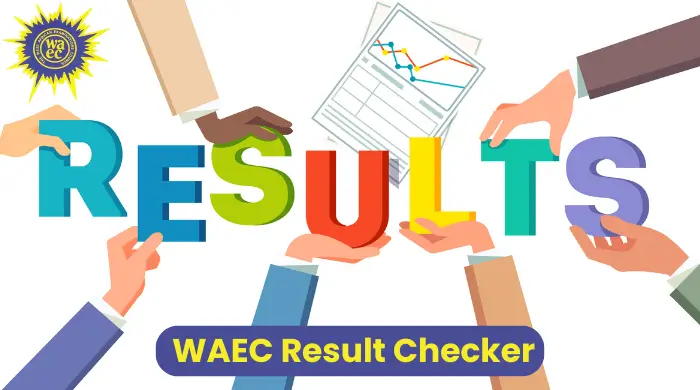What is the Difference Between WAEC and WASSCE?
What is the Difference Between WAEC and WASSCE? With good reason, WAEC and WASSCE are frequently regarded as being almost interchangeable since they are both essential to students’ academic paths throughout West Africa.
Nonetheless, it’s worthwhile to investigate a few significant differences between them.
You should know what WAEC and WASSCE mean, how they differ, and why they are important if you’re a student, parent, or even just interested in education in West Africa.
We’ll examine the distinctions between WAEC and WASSCE in detail in this post, as well as the functions they serve in the academic lives of millions of students. We’ll look at their histories, goals, organizational designs, and much more. Let’s get started!
Contents
What is WAEC?
Founded to oversee and standardize secondary school exams, the West African Examinations Council (WAEC) is a sizable examination organization in West Africa.
Since its founding in 1952, it has grown to become the regulatory body for a number of exams in West African nations, such as Ghana, Nigeria, Sierra Leone, The Gambia, and Liberia.
The main responsibilities of WAEC are to plan and administer tests and grant certificates to students in these nations. It guarantees that tests are uniform and pertinent to the area’s educational requirements.
With a mission to foster academic excellence and unity among West African nations, WAEC plays an indispensable role in the education system.
What is WASSCE?
One of the main tests administered by WAEC is the West African Senior School Certificate Examination (WASSCE). Students in senior secondary school take this test, usually at the conclusion of their studies. In West Africa, admission to tertiary institutions like universities, polytechnics, and colleges is determined by the results of the WASSCE.
ALSO READ :How to Get the PIN to Check WAEC Result
The WASSCE is administered twice a year, once in the spring as the “School Candidates” exam and once in the fall as the “Private Candidates” exam.
With a curriculum intended to assess students’ knowledge and prepare them for further study or the workforce, it covers both required subjects and electives selected by the students.
Differences Between WAEC and WASSCE.
| Aspect | WAEC (West African Examinations Council) | WASSCE (West African Senior School Certificate Examination) |
|---|---|---|
| Nature | An examination body/organization | A specific examination administered by WAEC |
| Scope of Responsibilities | Oversees multiple exams across member countries | Limited to certifying final-year secondary school students |
| Purpose | Coordinates and regulates standard exams across West Africa | Provides qualifications for higher education or employment |
| Exam Types Administered | BECE, GCE, WASSCE, and others | Only the WASSCE |
| Target Audience | Students of various levels depending on the exam type | Senior secondary school leavers |
Kind of Examinations Conducted by WAEC.
Junior secondary students take the BECE (Basic Education Certificate Examination) to make sure they are prepared for senior secondary school.
The West African Senior School Certificate Examination, or WASSCE, is normally taken at the conclusion of a senior’s secondary education.
Candidates outside of the traditional school system or those looking to raise their grades can take the more flexible GCE (General Certificate of Education) exam.
Importance of WAEC As an Organization.
Across-Border Standardization of Education: WAEC’s exams foster a unified curriculum by establishing a consistent educational standard among its member nations.
Internationally recognized certificates from WAEC enable students to continue their education overseas.
Facilitating Admission to Universities: Tertiary institutions in West Africa and other regions of the world require WAEC certificates, especially those from WASSCE, as a prerequisite for admission.
WAEC Grading system and Marking Scheme.
WASSCE has a standard grading system that ranges from A1 to F9:
- A1 – B3: Excellent to Good
- C4 – C6: Credit Pass
- D7 – E8: Pass
- F9: Fail
Conclusion
The main exam organization in charge of administering the WASSCE, BECE, and GCE exams throughout West Africa is WAEC. Various student categories are served by its exams, each of which has unique eligibility requirements.
The WASSCE, for example, has two versions: one for school candidates, which is limited to students enrolled in accredited secondary schools and takes place between April and June, and one for private candidates, which is open to independent learners or repeat candidates and usually takes place between September and October.
More flexibility in obtaining certification is made possible by this structure.
Despite having different purviews—one as an administrative organization and the other as a particular test—WAEC and WASSCE are closely related because they both aim to advance educational standards and offer certification that is accepted both domestically and globally.
Frequently Asked Questions
Yes, WAEC provides WASSCE for private candidates, allowing students to retake exams and improve their scores.
Yes, WAEC is specific to West African countries, including Nigeria, Ghana, Liberia, Sierra Leone, and The Gambia.
Yes, many universities and organizations worldwide recognize WAEC certifications, especially WASSCE results, as valid academic qualifications.
WASSCE is conducted twice a year: once for school candidates in April-June and once for private candidates in September-October.
English, math, and at least one science are core subjects; other elective subjects are chosen based on the interests and aspirations of the students.


